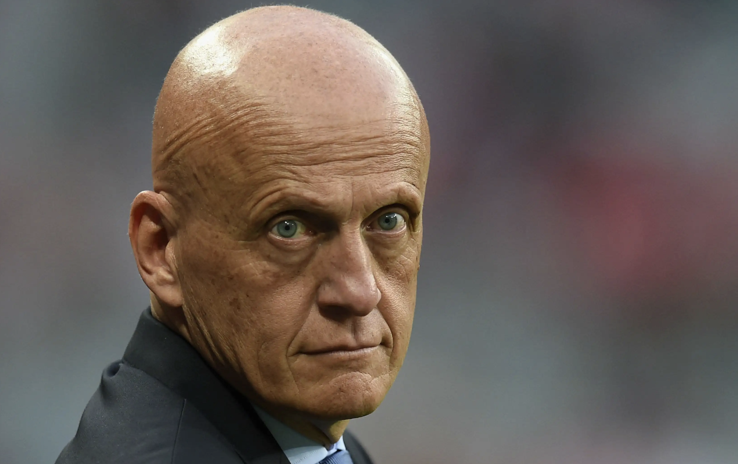July 11 – FIFA has declared the introduction of referee body cameras, a revised time restriction for goalkeepers, and an enhanced offside detection system at the 2025 Club World Cup a resounding success.
Despite its mixed reception off-field, particularly by former Liverpool manager Jurgen Klopp who branded it the “worst idea in the history of football”, the tournament has served as a proving ground for several officiating innovations.
Pierluigi Collina, chairman of the FIFA Referees Committee, followed the company line and praised the effectiveness of the new tools.
“The outcome of using the ref cam here at the FIFA Club World Cup 2025 went beyond our expectations,” said Collina. “We thought it would have been an interesting experience for TV viewers and we’ve received great comments.”
Collina stressed the new body cameras held educational value in addition to boosting broadcast appeal.
“We had the possibility to see what the referee sees on the field of play,” he explained. “This was not only for entertainment purposes, but also for coaching the referees and to explain why something was not seen on the field of play.”
One such instance came during the group stage clash between Atlético Madrid and Paris Saint-Germain, where a potential handball incident was missed live. “From this ref cam, it was absolutely clear that the referee could not have seen that incident live on the pitch,” said Collina. A VAR review ultimately awarded a penalty.
In parallel with the camera technology, FIFA trialled a new enforcement rule around goalkeeper time-wasting. Under the updated guidance, if a goalkeeper holds the ball for more than eight seconds, a corner kick is awarded to the opposing team – a marked shift from the previous indirect free kick after six seconds, which was rarely actually enforced.
“It was very successful; the tempo of the match was improved,” said Collina. “We had no time lost by goalkeepers keeping the ball between their hands for a very long time – as happened quite often in matches before.”
Only two goalkeepers have been penalised during the tournament, but Collina insisted the deterrent effect was the true objective. “The purpose was not to give corner kicks, but to prevent the eight seconds rule from being ignored. The purpose was 100 per cent achieved,” he said.
The Club World Cup also featured a more advanced version of FIFA’s semi-automated offside technology, designed to further reduce decision times and avoid unnecessary continuation of play.
A total of 117 match officials – including 35 referees, 58 assistant referees, and 24 video match officials – from 41 FIFA member associations were deployed across the 63-match tournament.
The 2025 Club World Cup concludes on Sunday in New Jersey, where Paris Saint-Germain face Chelsea in the final.
Contact the writer of this story, Harry Ewing, at moc.l1754152653labto1754152653ofdlr1754152653owedi1754152653sni@g1754152653niwe.1754152653yrrah1754152653
